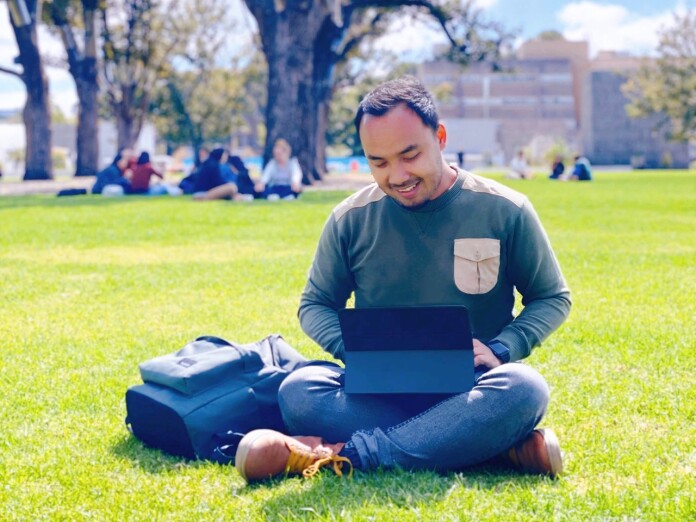“Arficano Tanjung Rizavi, an awardee of LPDP Scholarship, is currently pursuing a Master of Teaching degree at The University of Melbourne, Australia. In this article, he explored his experience in learning to teach and teaching to learn in the early childhood education context. He hopes to bring positive changes into the education context for young learners and encourages a more equal gender representation into our early childhood settings in Indonesia.”
***
Beginning The Journey
Homines dum docent discunt.
No, that is not a spell from the Harry Potter series. That saying translates to the idea that we humans also learn while teaching. Perhaps such saying has been one of the reasons behind my pursuing a master’s degree in teaching now.
Having finished my undergraduate program in English Linguistics, it only made sense that I started my professional journey as an English tutor. Still, I felt the urge to try working in other fields such as music and communications. It is safe to say that I did well in both fields; however, it was no sooner than in 2018, when I was working at an Australian education provider in Jakarta, that I realised my passion and true calling for teaching.
As the Australian education system felt closer to my everyday life at that time, I decided to look for a master’s degree in Australia, which particularly would allow me to prepare myself for being a properly certified teacher as well as gaining the master’s qualification.
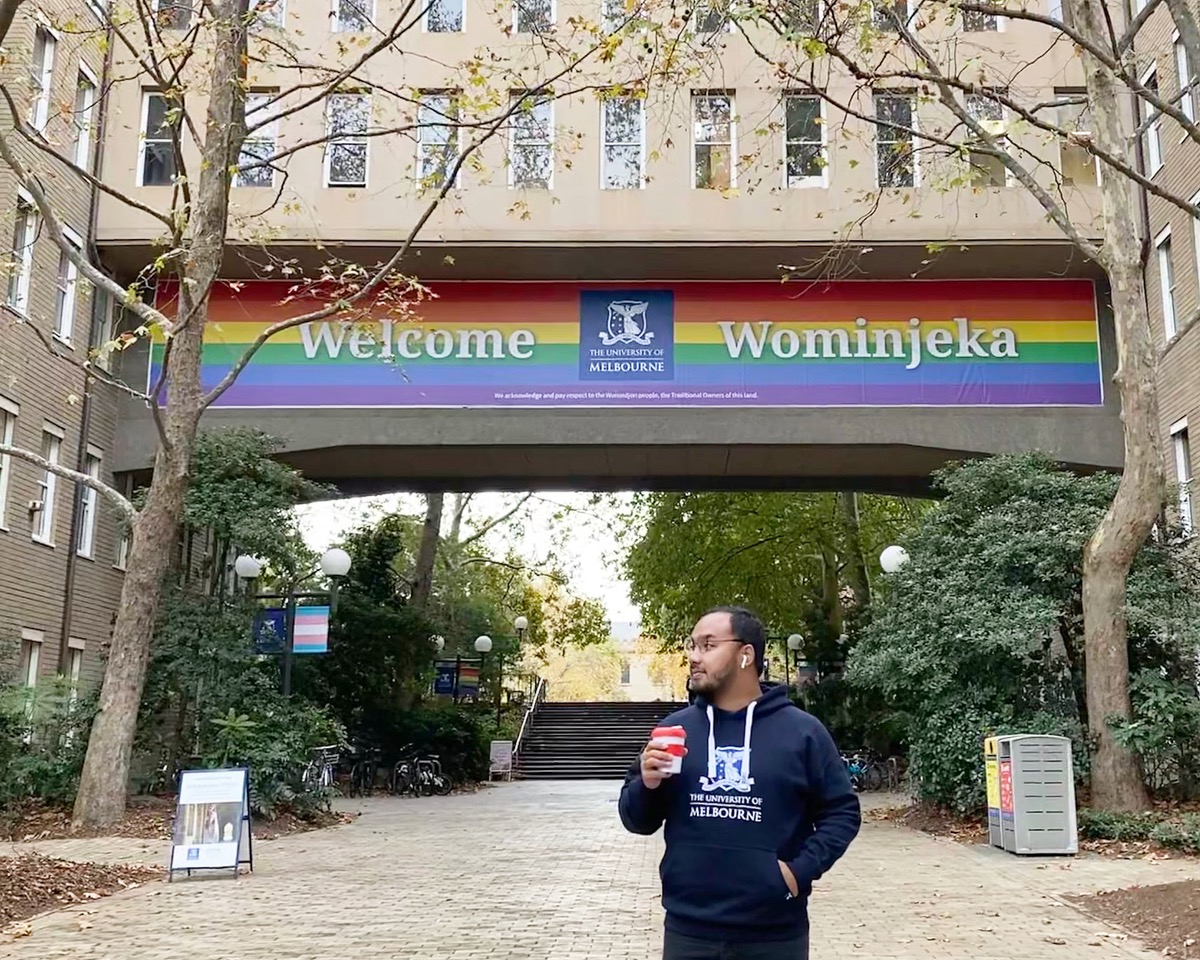
Upon comparing programs, I considered the University of Melbourne’s Master of Teaching as one of the most promising programs, especially because it offered a cohort that combined the qualifications for teaching in both early childhood settings and primary education all in one go. Besides, the University of Melbourne (henceforth referred to as UniMelb) was deemed the highest-ranked university in Australia in the field of education. Therefore, I decided to focus on how to get my Letter of Acceptance from UniMelb.
Admission Tests at The Master of Teaching Program
Before submitting my application, I had to take the Teacher Capability Assessment Tool (TCAT) test, which asked about my previous experience of handling classes and teaching students and a wide range of different assessments on literacy, numeracy, personal traits, among other aspects. Once the result was considered appropriate, Unimelb would process my application. Aside from the TCAT, I had to satisfy the English language requirement, which was equivalent to at least IELTS’s band 7 for every section. Even from that moment, I realised that this was going to be one challenging course; still, I was determined to give it a try.
Long story short, I got admitted and finally commenced my study in February 2020, just before all these adverse circumstances of COVID-19 hit the world. My program consists of 250 credits to be completed in two years—another challenge indeed, as usually a 2-year master’s program would only have 200 credits. This practically means I would always have some intensive classes going on during the semester breaks. I would have classes not only to attend but also to teach, as I need to complete 107 days of teaching placements within two years—consisting of 60 days in early childhood and 47 days in primary.
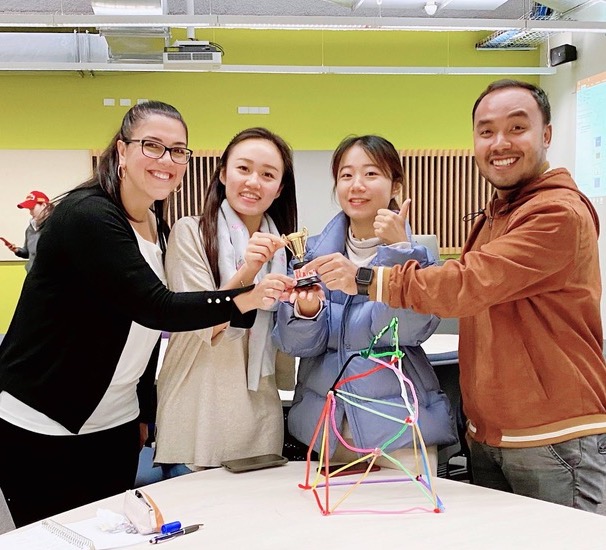
I must sit the mandatory Literacy and Numeracy Test for Initial Teacher Education (LANTITE) and satisfy the standard, i.e., showing literacy and numeracy proficiency being within the top 30% of the population. In Australia, to be a registered primary teacher, you must meet this standard before graduating from your teacher training program. Teaching is among the most highly sought-after professions in Australia; therefore, it is deemed crucial that a pre-service teacher reach a high standard of knowledge to help bring impactful teaching into the classroom.
Coping with Academic and Non Academic Challenges
As much as I am grateful for having the opportunity to pursue my master’s degree, I must say the program has stressed me out a lot due to its intense nature. On top of the critical thinking expected in each assignment, the high piles of reading materials may sometimes burn my head a lot more than Melbourne’s hottest Summer days would. Personally, if I could turn back time, I would have familiarised myself more with reading complicated academic writings prior to commencing my study, and I also would have tried to boost my writing skills further to get all my assignments done relatively faster.
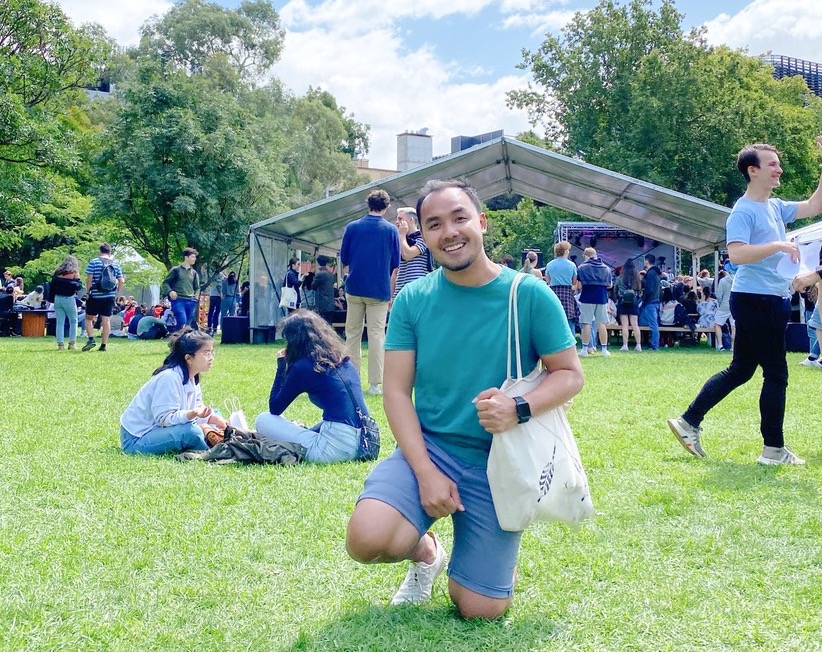
Luckily, the burnout might evaporate rather quickly when I had that rewarding feeling from successfully scaffolding my students’ learning and development. That feeling might be the reason why I chose to get into the industry. My program’s subjects have been big on creating an inclusive learning environment that responds to students’ diverse backgrounds while staying true to the concept of viewing children as capable human beings who should get equal opportunities to learn. This notion motivates and guides me in moving forward, as I feel that the education system in Indonesia could learn much from the progressive education system in Australia, especially about learning equity.
Pursuing Early Childhood Education as a Male
You might be questioning why I had chosen early childhood, in addition to the much more common primary school teacher training program. To answer that, I would like to invite you to think about how many male teachers you have ever seen in early childhood education settings in Indonesia. I am almost sure that not many of you could give high numbers. Here in Melbourne, preschools and kindergartens usually would have a very limited number of male teachers in the centres. I was one of the only two male figures in the last centre I was placed. I dream of having the opportunity to bring ‘equal’ gender representation into our early childhood settings in Indonesia, with the hope that it could also bring positive changes to Indonesia’s gender equality issue, especially in education settings.
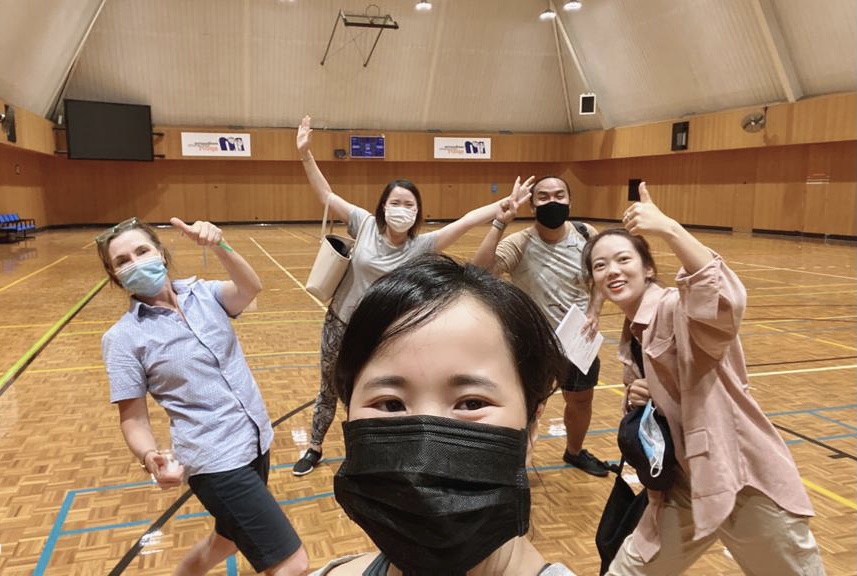
If you would like to pursue a teaching career in Australia, learning in Unimelb’s Master of Teaching may benefit you because of its high graduate employability rate. However, speaking from experience, it is certainly not for the faint-hearted. Preparation is key to getting into and through the program. The program offers mentoring services once you are enrolled and when you are in teaching placements; however, it may work better if you have mentors to learn from even prior to getting enrolled. See, the saying says it all: homines dum docent discunt. The cycle keeps going: you learn to be a teacher, then you teach and concurrently learn—only to teach again.
***
Editor: Yogi Saputra Mahmud








